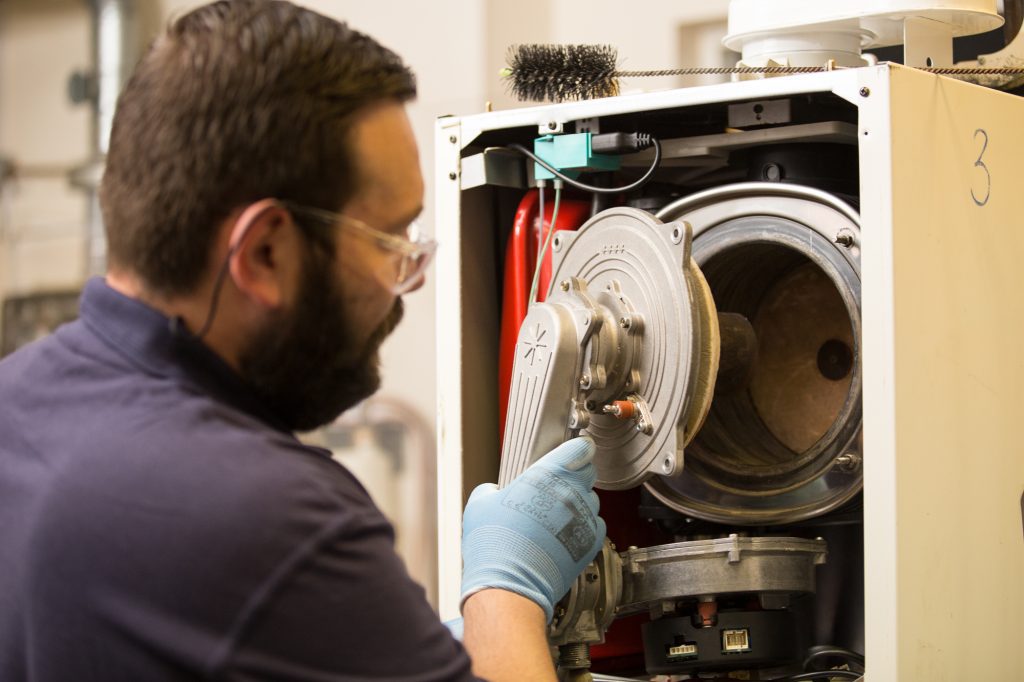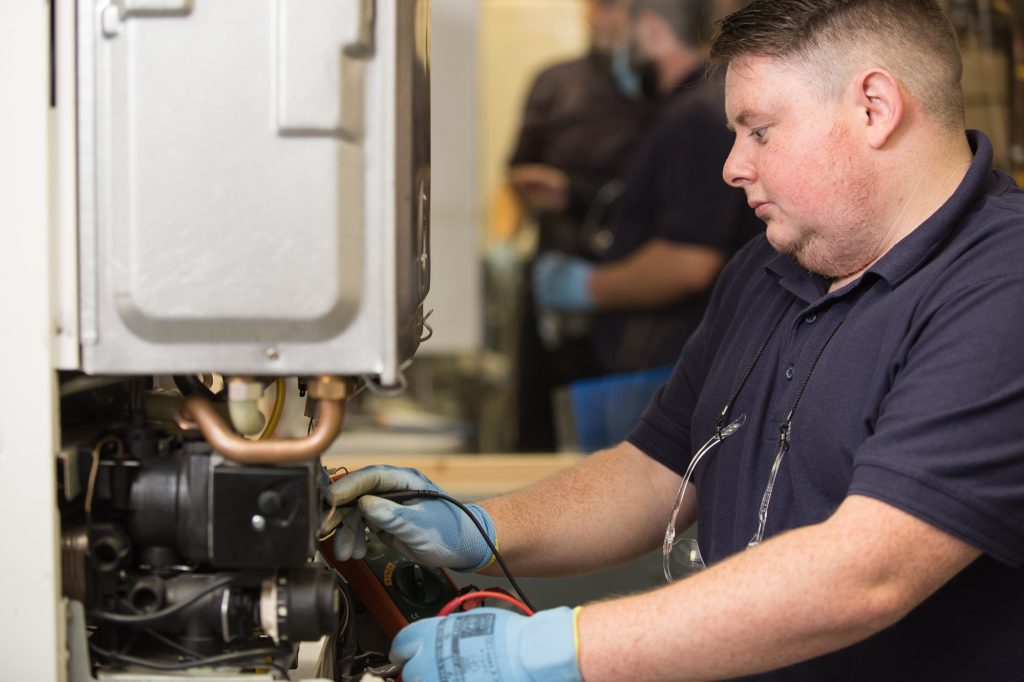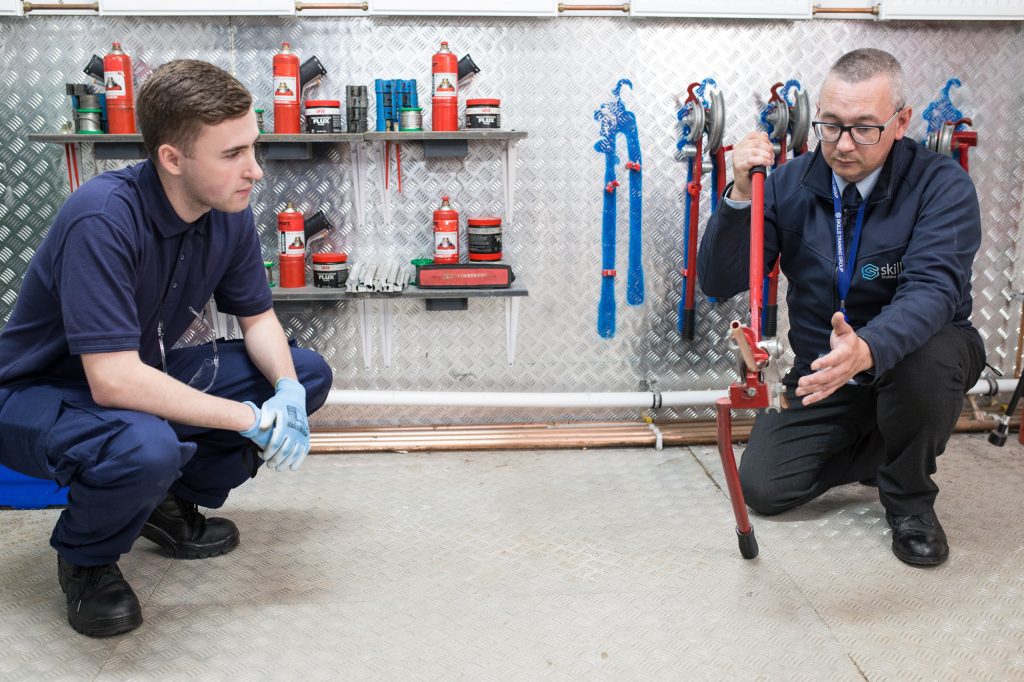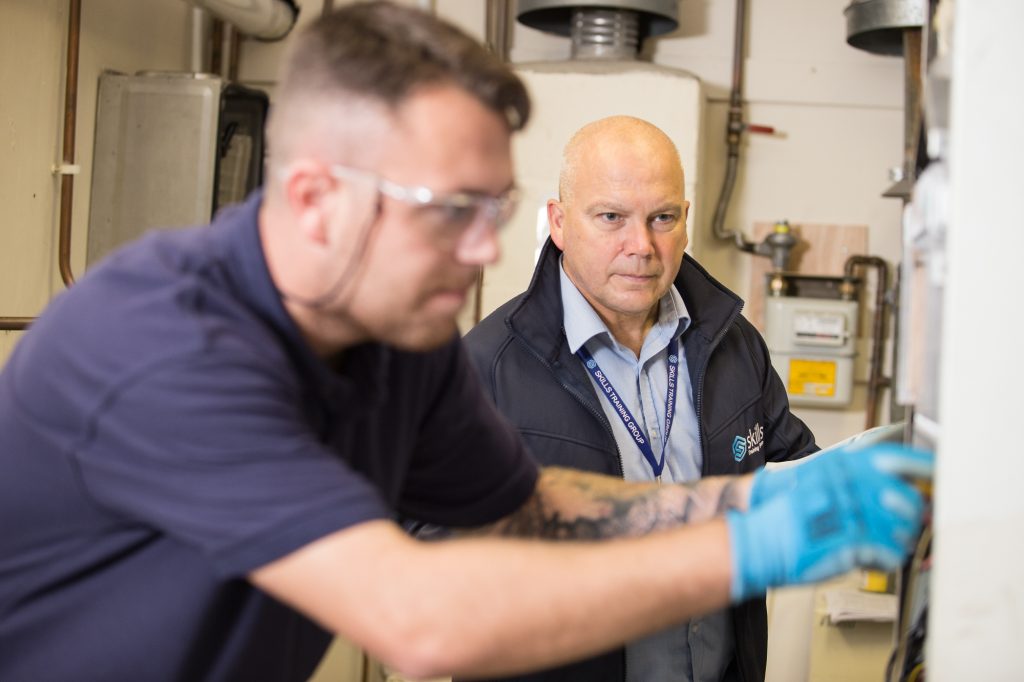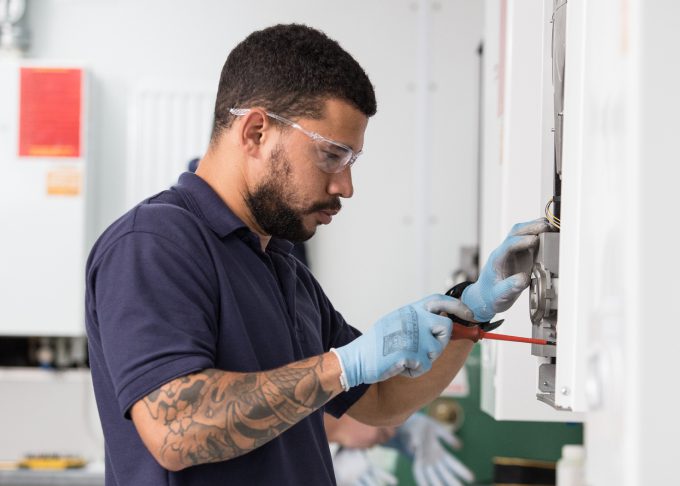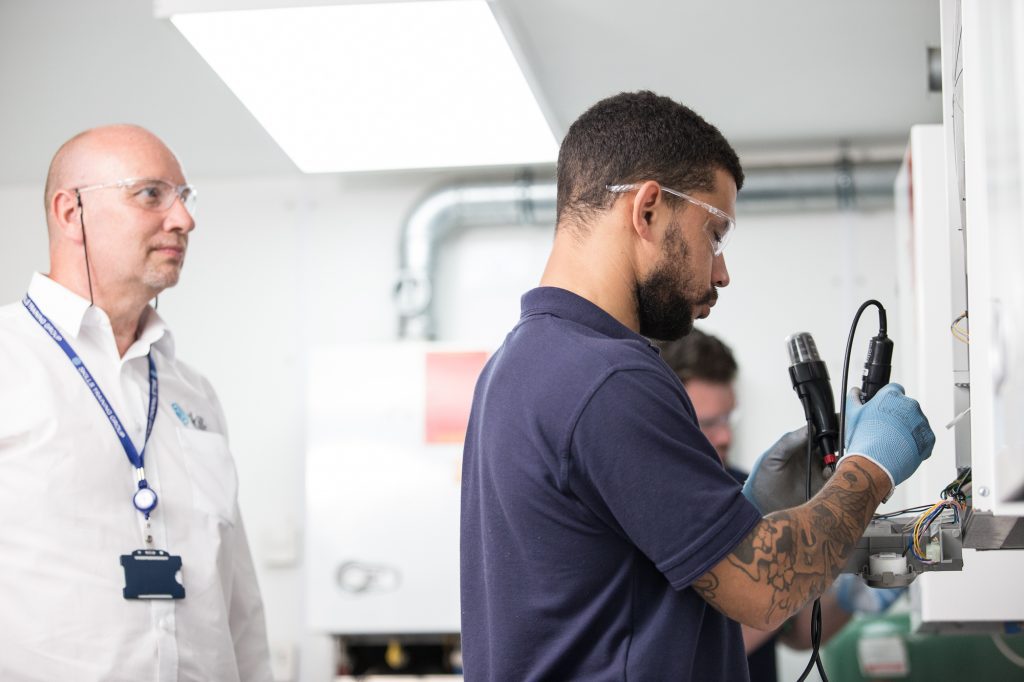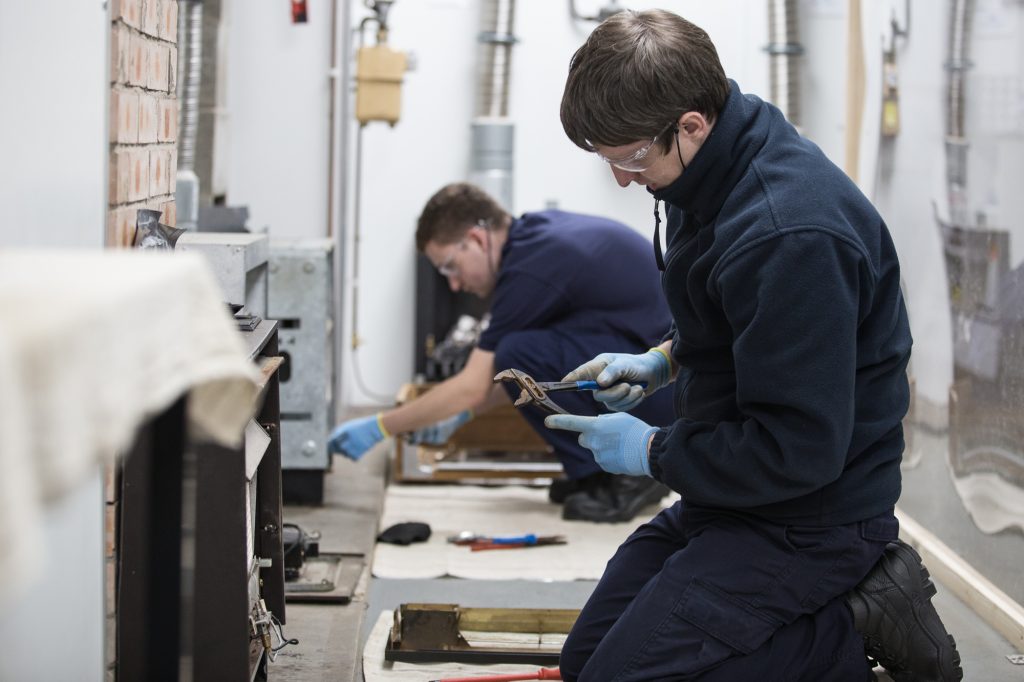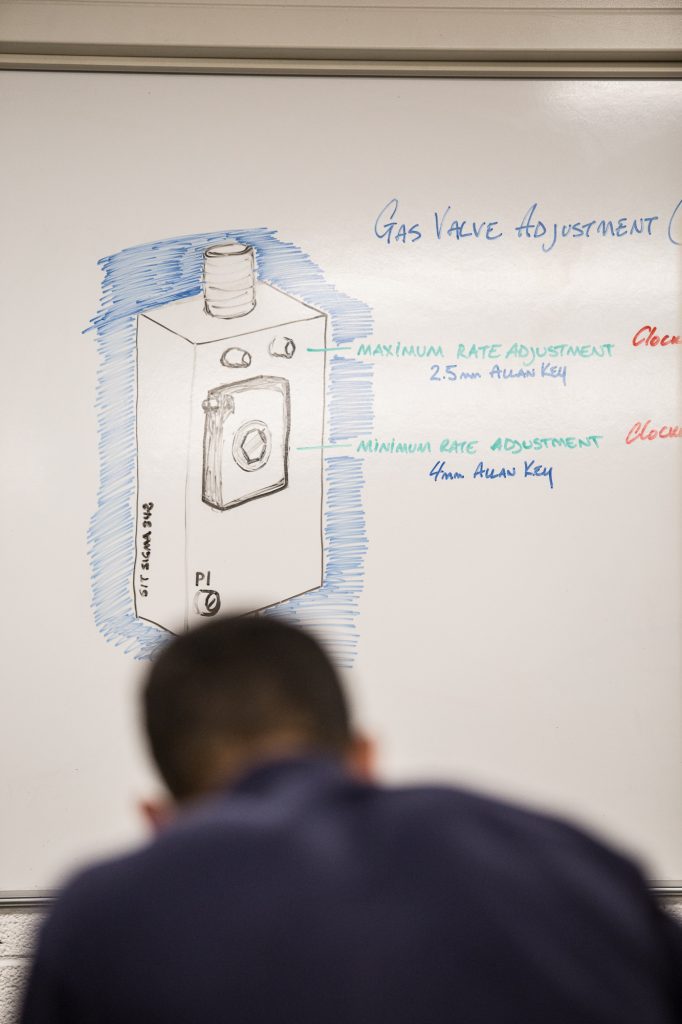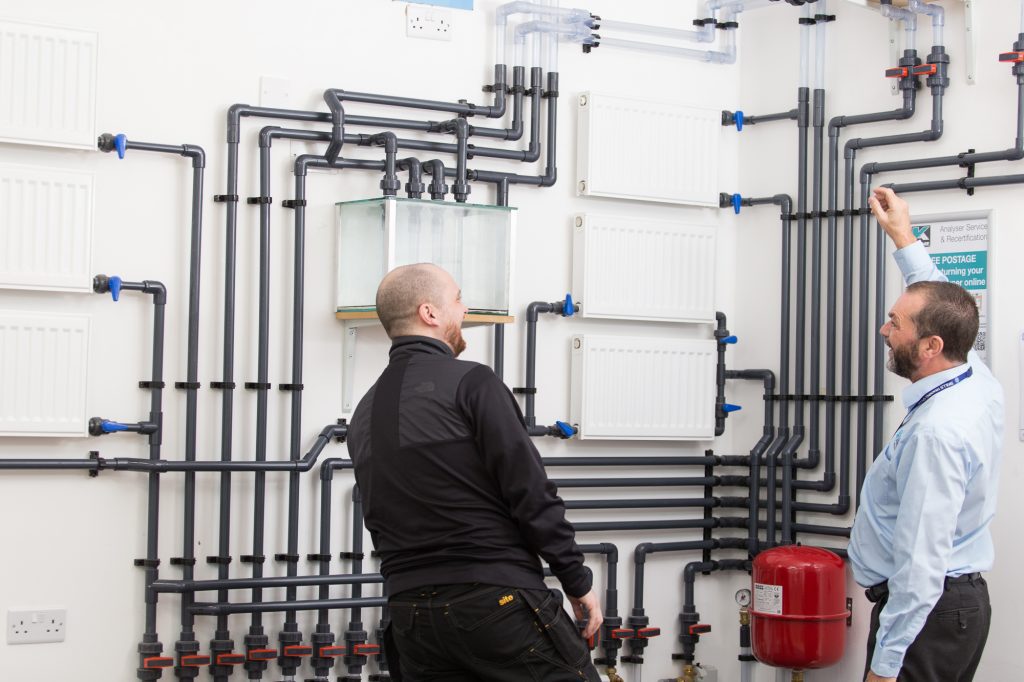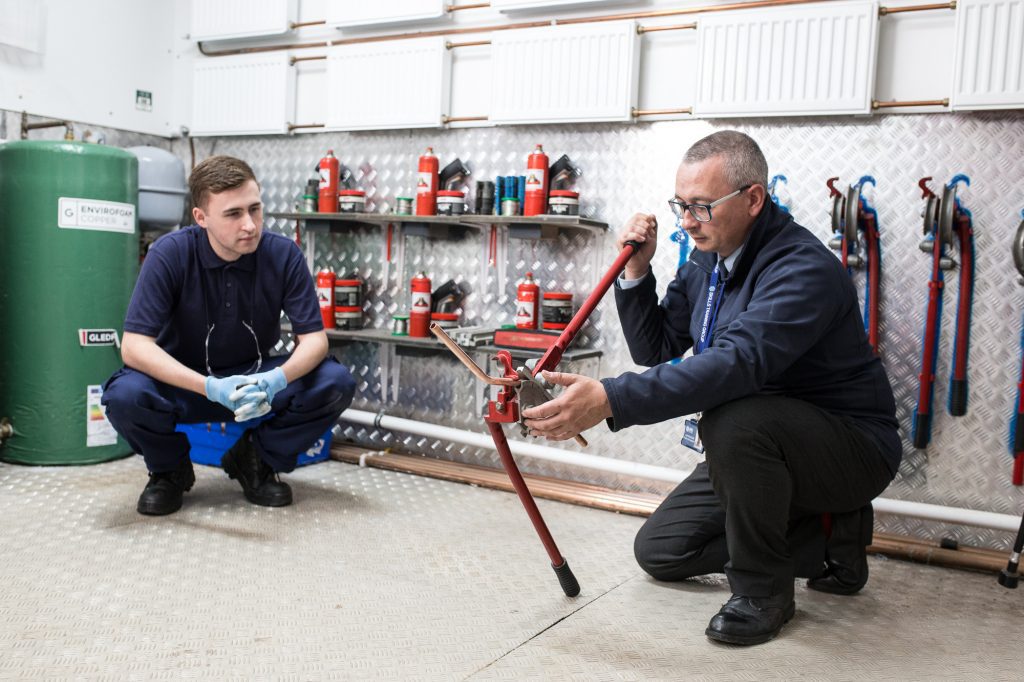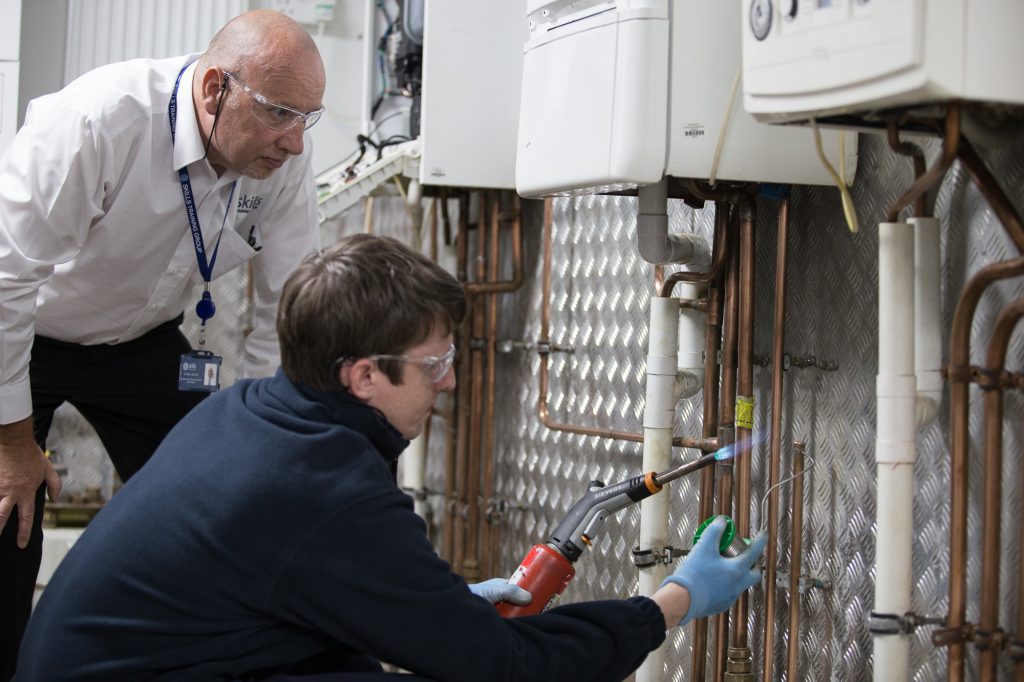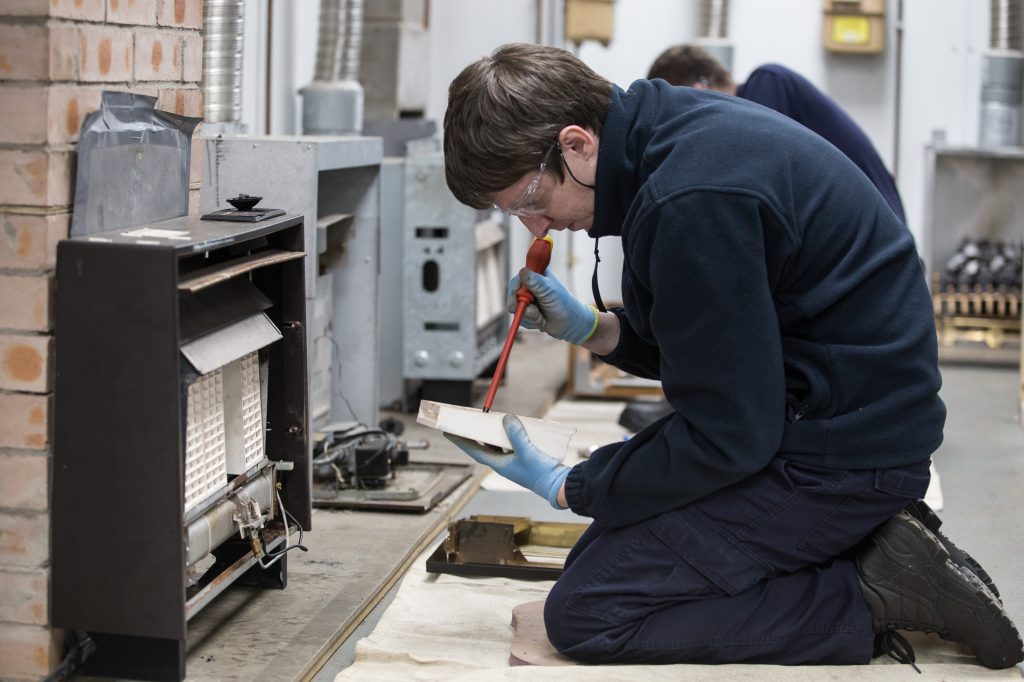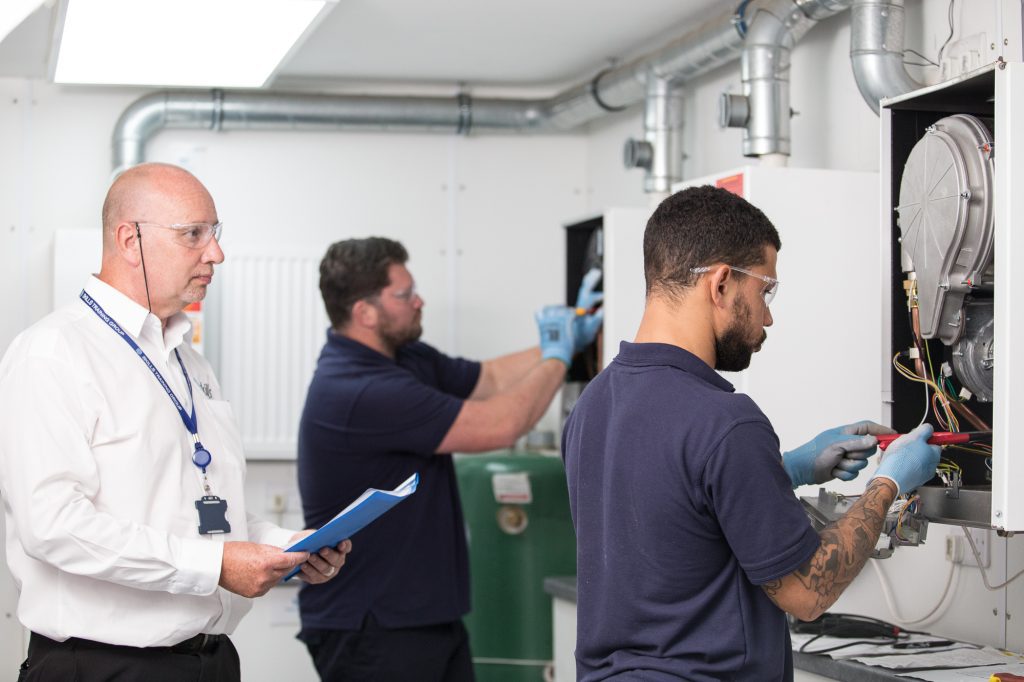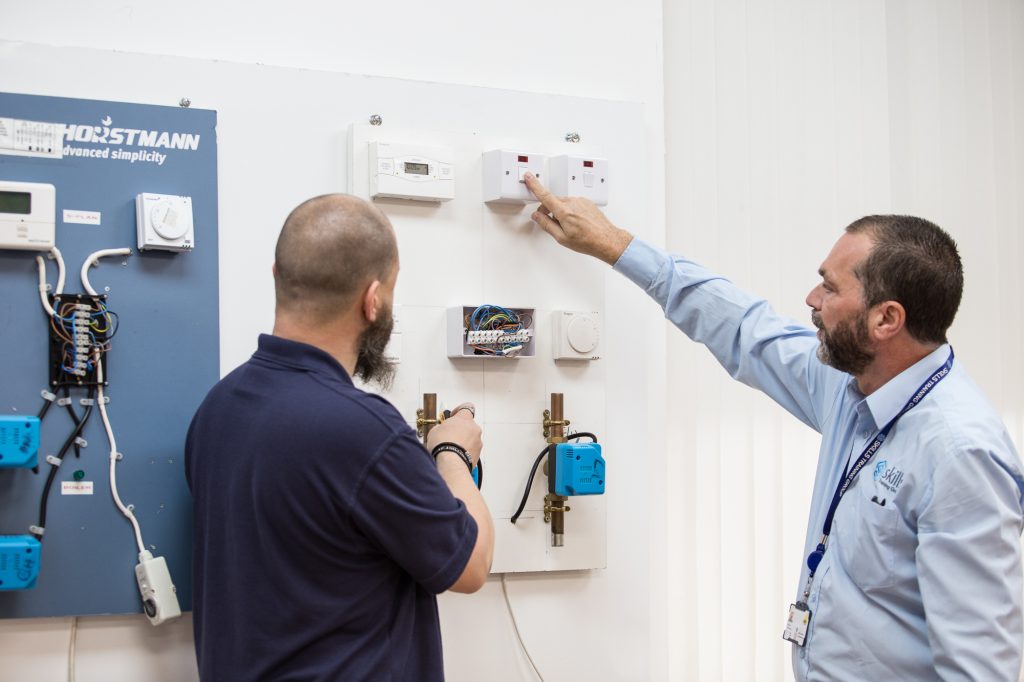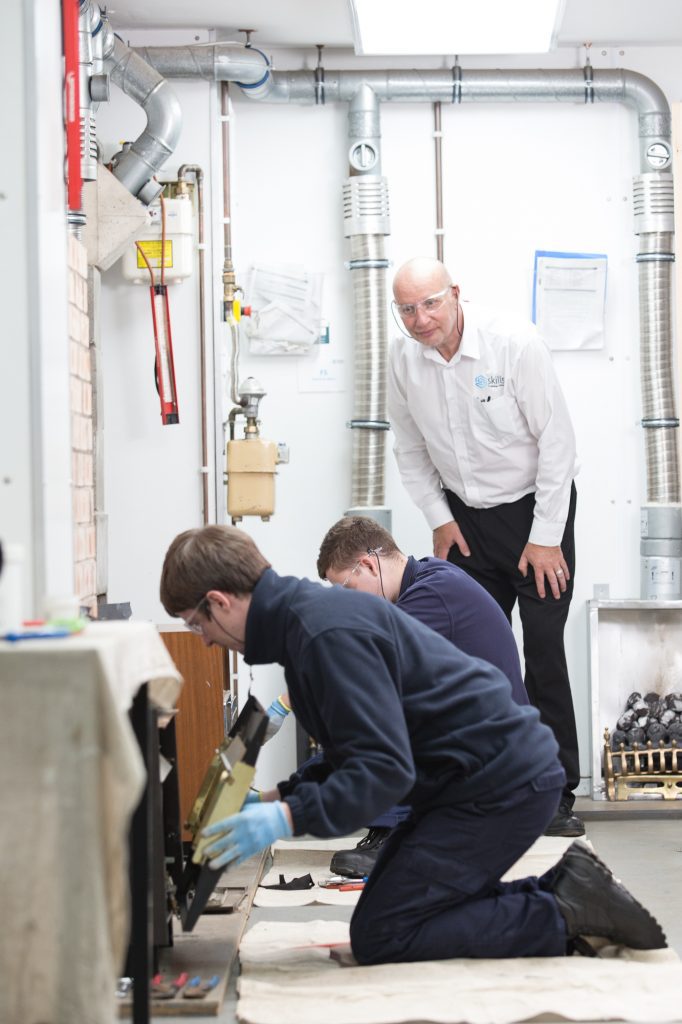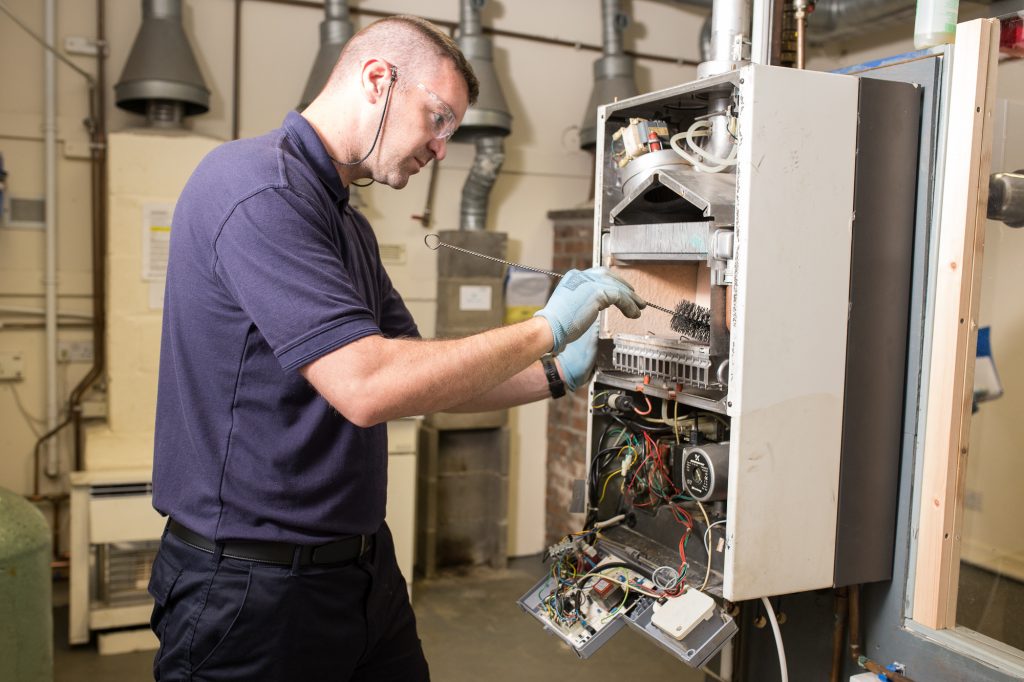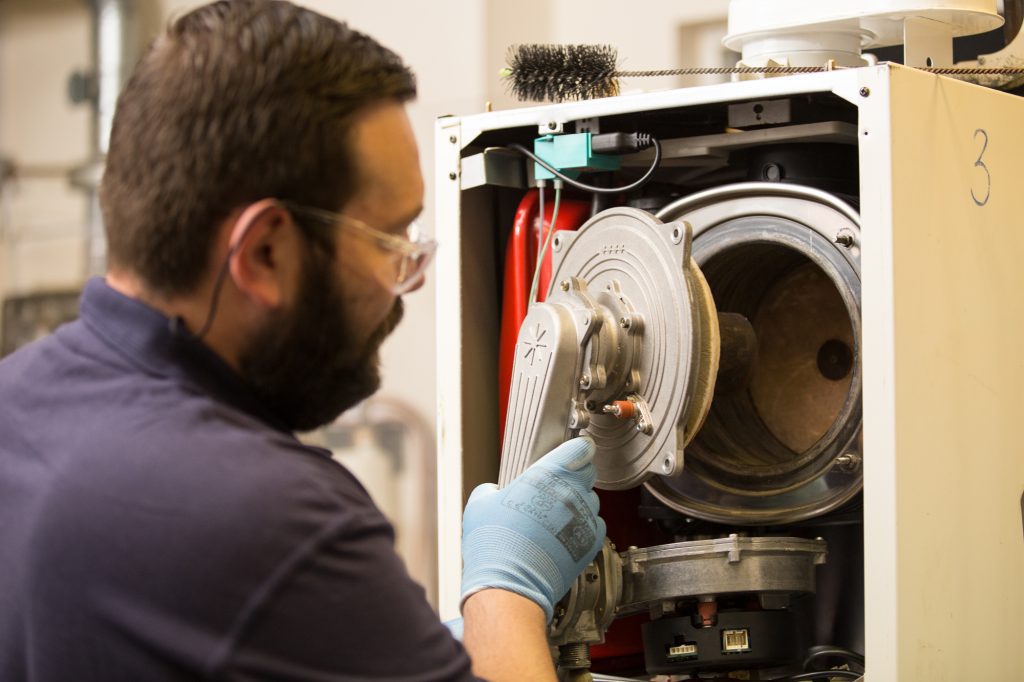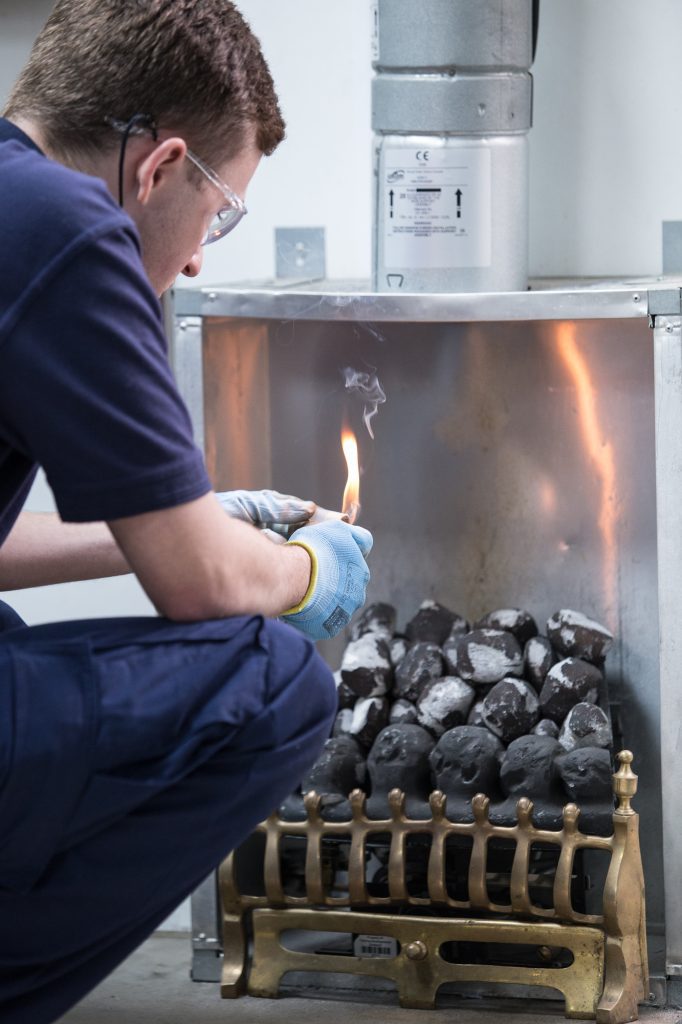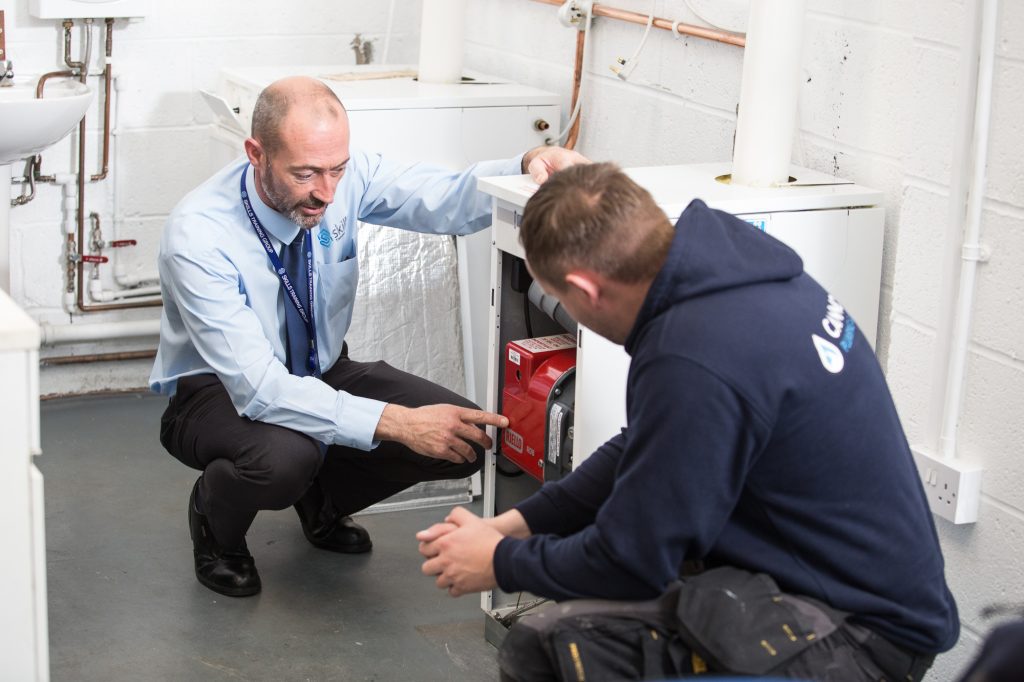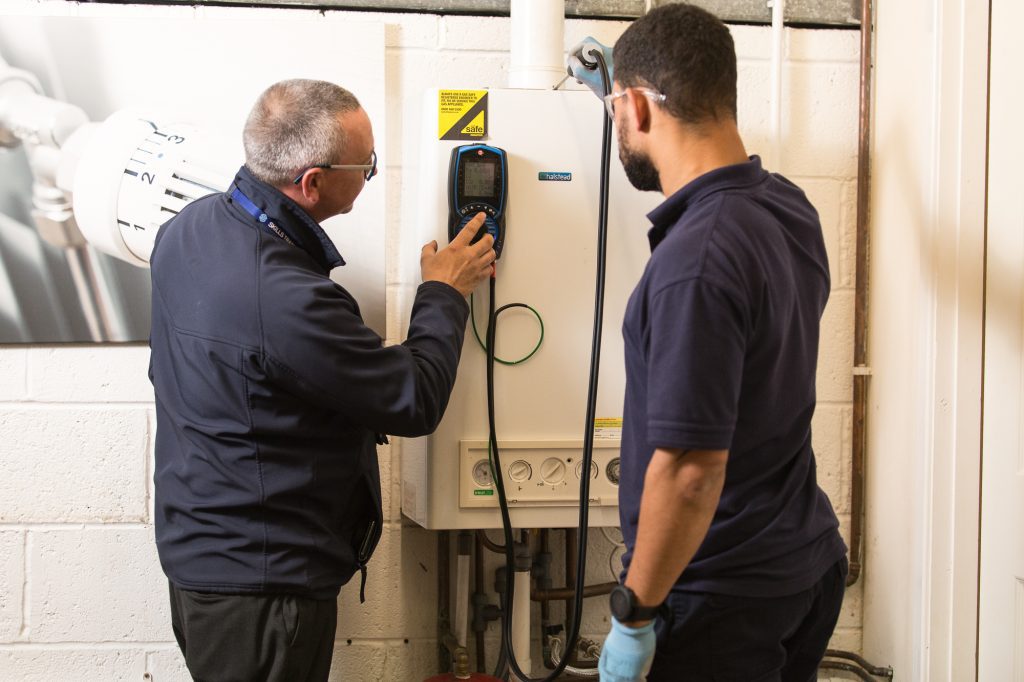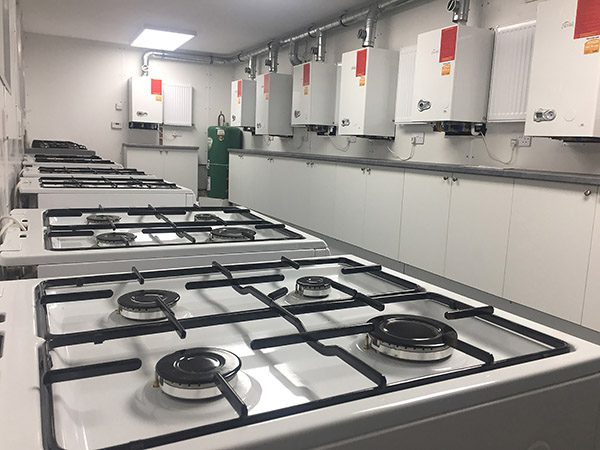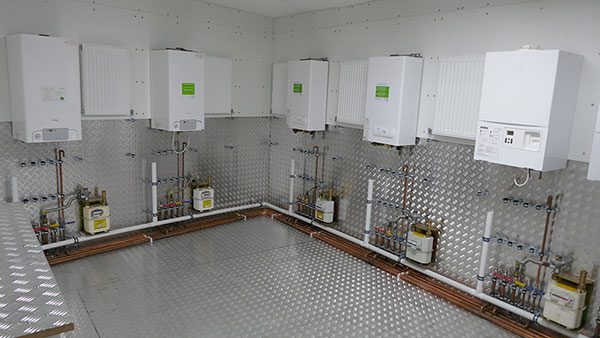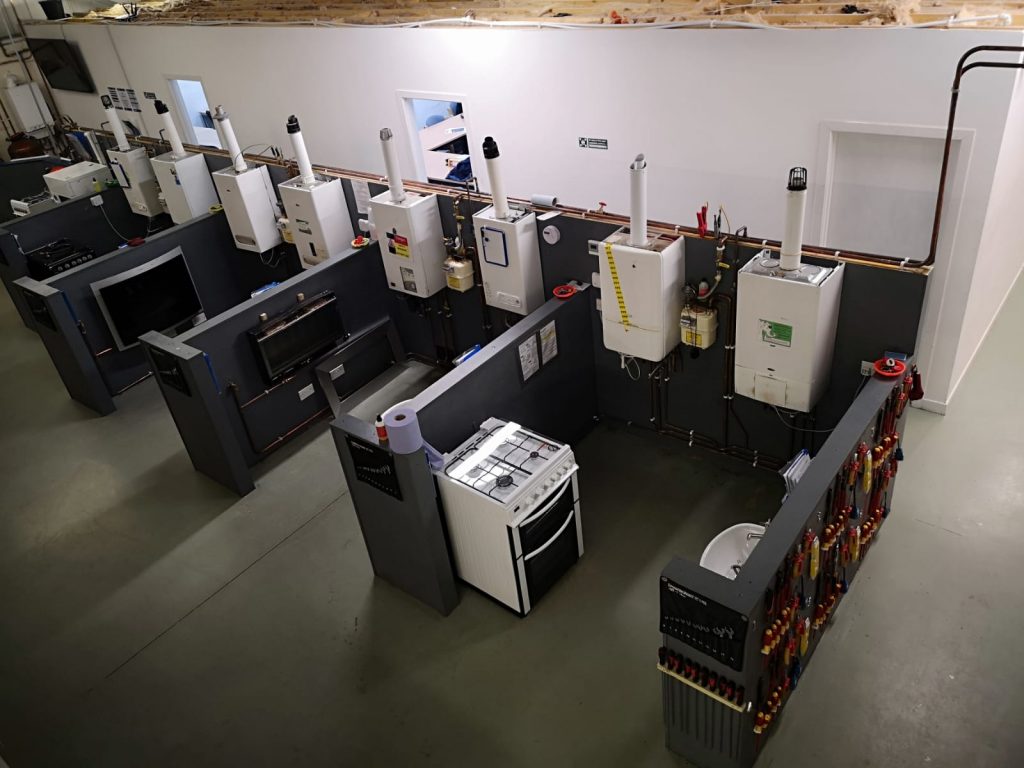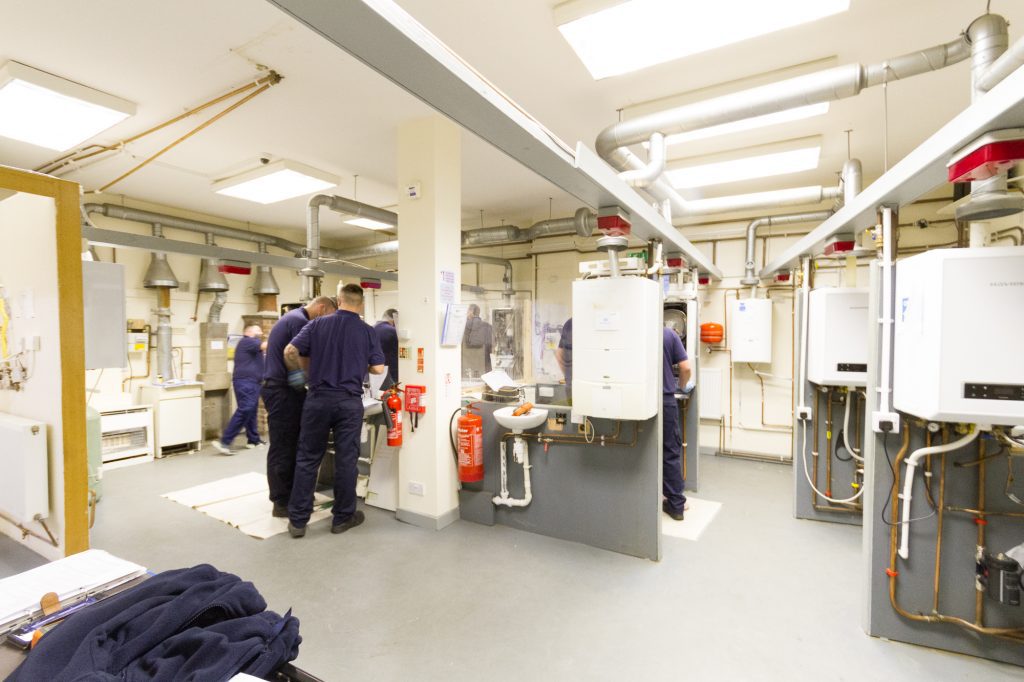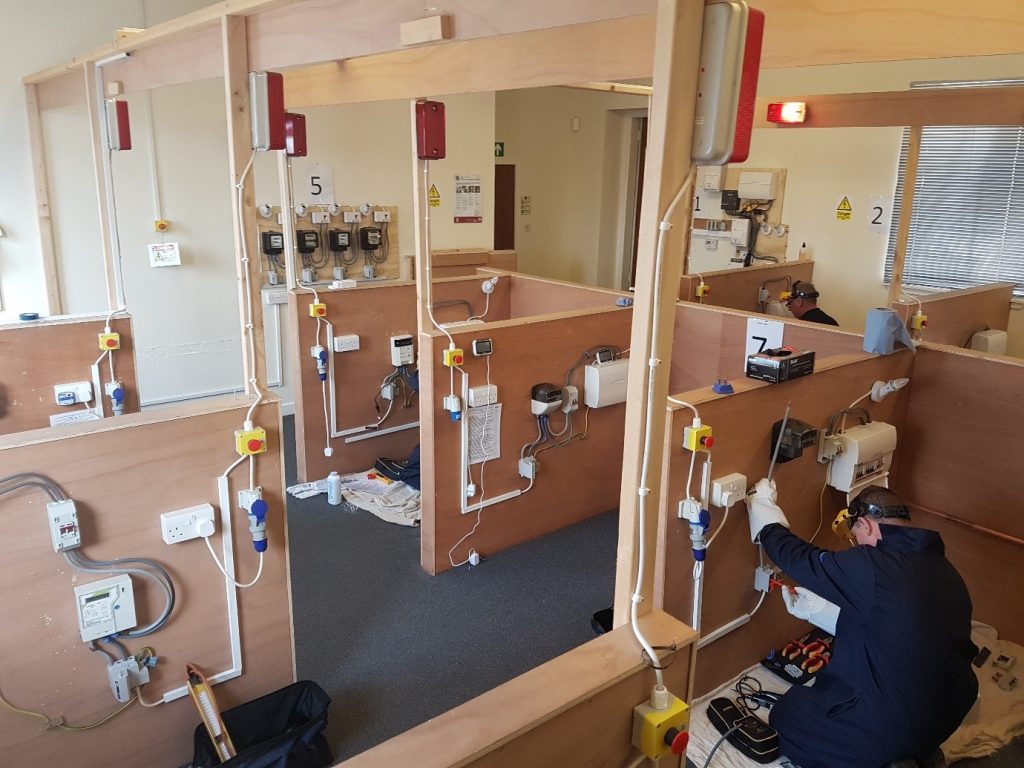Course overview
Our 25-week gas engineer course in Edinburgh is the UK’s most comprehensive and in-depth gas safe course for adults.
We go the extra mile for all our students, ensuring that they’re not only fully qualified but the most employable as well. Our expert learning and development team have identified skill shortages within the industry through their years of experience. We have incorporated this knowledge into our training syllabus making you a valuable asset for employers.
With a blend of classroom and workshop-based learning, we believe that ‘hands-on’ learning is essential to train for a career in the gas industry.
Qualification Overview
CCN1 – Core Domestic Gas Safety
CPA1 – Combustion Performance Analysis
CENWAT – Domestic Gas Central Heating Boilers & Water Heaters
CKR1 – Domestic Gas Cookers
HTR1 – Domestic Gas Fires & Wall Heaters
Download information pack